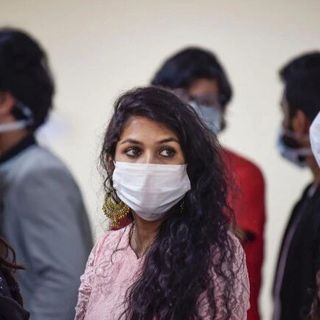Researchers have found people who rely on social media for vaccine-related information are misinformed as compared to those who depend on traditional media for information.
In a study of vaccine knowledge and media use conducted by researchers from Annenberg Public Policy Center (APPC) of the University of Pennsylvania, at least 20% of the 2,500 adult participants were found to be misinformed about vaccines.
Researchers said this high level of misinformation is worrying because it lowers vaccination rates that ultimately affect the immunity of a community.
With social media such as Facebook, Twitter, and other platforms, amplification of misinformation regarding vaccines has become very easy, Sally Frampton, humanities and healthcare fellow from the University of Oxford, writes for The Conversation.
“Anti-vaccine groups have effectively exploited social media, creating confusion and stoking fears among parents, potentially undermining progress in reaching all children with vaccines,” according to UNICEF.
The current study was carried out during the Spring and Fall of 2019, when the U.S. was undergoing a large measles outbreak. Between the two time periods, the level of misinformation changed drastically — researchers observed almost 64% of participants were more misinformed in the Fall than earlier in the Spring.
Among those who were getting their information from social media, at least 18% mistakenly said, “it is very or somewhat accurate to state that vaccines cause autism”; 15% believed it was accurate to state that vaccines were full of toxins, while 20% thought it didn’t make a difference whether parents chose to delay vaccinating their kids instead of adhering to the schedule determined by the U.S. Centers for Disease Control and Prevention (CDC). Additionally, 19% also said it was accurate to say that it’s better to build immunity by fighting diseases than by vaccination.
Related on The Swaddle:
“People who received their information from traditional media were less likely to endorse common anti-vaccination claims,” lead author Dominik Stecula, a postdoctoral fellow in the science of science communication program at the APPC, said in a press release.
Researchers added the level of trust individuals had in their medical experts also affected their consumption of misinformation from social media. The lower the trust in their doctor, the higher the likelihood of believing vaccine (mis)information. And nothing changed over time: Researchers found at least 81% of those in the sample were just as informed or misinformed in Spring — i.e. at the beginning of the outbreak just as the CDC ramped up efforts to inform the public — as they were a couple of months later in the Fall, despite thes CDC’s months-long attempt to educate the public.
These findings are important for national pro-vaccination campaigns and health professionals if they have to tackle the growing belief in misinformation caused by social media, the researchers said.




